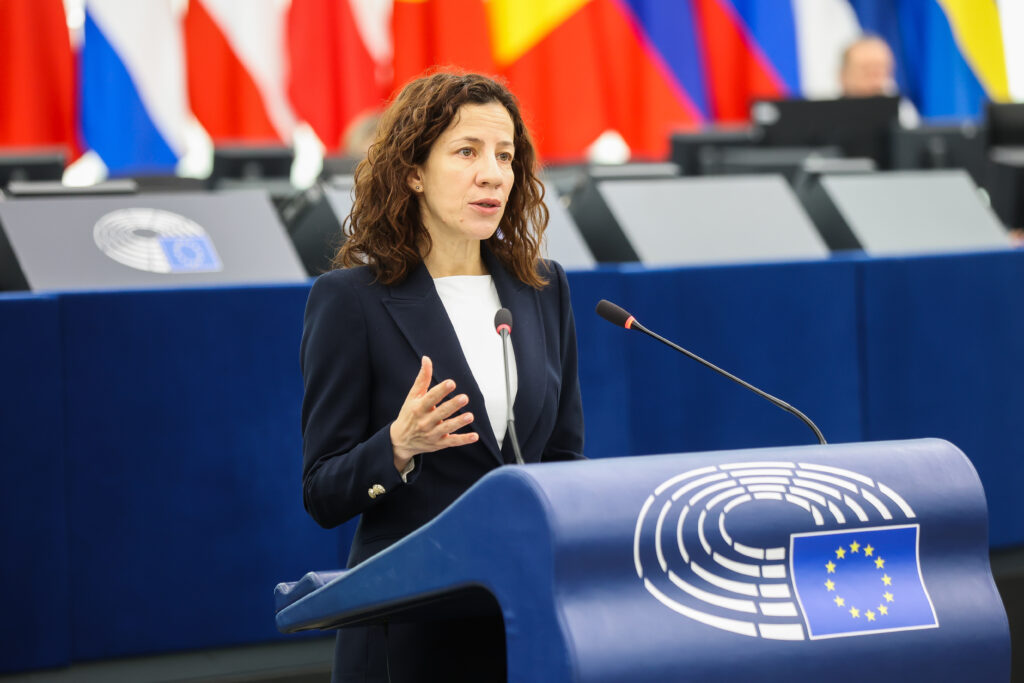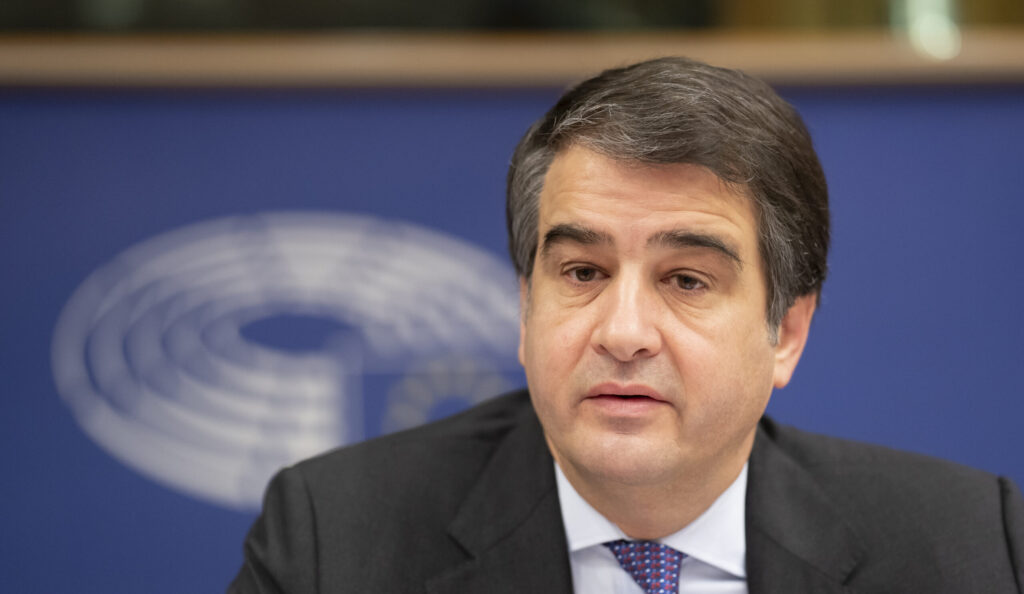Brussels – The European Union must be ready to overcome the next crises. Whatever kind they may be, wherever they may strike. That, in a nutshell, is the meaning of the Strategy on Preparedness by which the EU executive aims to “train” member states and their populations to respond in an orderly manner in different potential crisis scenarios, from wars to natural disasters, in the name of a concept of security as holistic as possible.
The Preparedness Union Strategy presented today (March 26) by Roxana Mînzatu, executive vice-president of the Commission with responsibility for, among other things, Preparedness, and by the Commissioner for Crisis Management, Hadja Lahbib, is the EU’s attempt to become resilient for whatever kind of crisis may hit it: wars, pandemics, extreme weather events, natural disasters, cyber-attacks, disinformation operations, sabotage and hybrid actions of various kinds, to mention a few. It is the first tangible product to emerge from the meeting of the so-called “Security College” launched earlier this month by Ursula von der Leyen.

Underlying the strategy—a set of guidelines that effectively constitutes an elaboration of the report prepared last Autumn by former Finnish President Sauli Niinistö—is the belief that the Old Continent’s approach must shift from reactive to proactive, since, on balance, prevention is better than cure. And the realization that, in the complex and volatile landscape of contemporary security, risks and threats are now interconnected. In short, an “insurance policy” for the Union, as Mînzatu called it.
The Commission’s vision is guided by three principles: an intersectoral approach that applies to all types of risk (all-hazards approach), one that coordinates together all relevant actors and authorities at any level of government from local to community (whole-of-government approach), and one that leverages supportive action among various segments of society: city communities, civil society organizations, private businesses and entities, social partners, academic and scientific communities as well as public authorities (whole-of-society approach).
At the organizational level, the milestone of the whole plan is coordination between the various actors, levels and parts of the social body, and between Brussels and the Twenty-seven, as happened in managing the pandemic crisis or the war in Ukraine. It is understood that, as also pointed out by the Commission’s Executive Vice-President in charge of Cohesion, Raffaele Fitto, each member state and each region of the EU faces “very different challenges and potential risks” (from the Russian threat in the East to the consequences of climate change in the Mediterranean basin).

Concretely, the strategy is structured around seven main chapters divided into several key actions. Overall, the total number of specific actions identified by the EU executive exceeds sixty. And all of them are to be integrated horizontally into every aspect and phase of EU policymaking, from design to implementation.
There is the protection of “essential social functions” (which includes the protection of critical infrastructure and the storage of critical materials and equipment), the promotion of population preparedness (including through schooling, to instil in the population a “culture of resilience“), the improvement of coordination in crisis response, strengthening both civilian-military cooperation and public-private synergies, as well as that with external partners (primarily NATO allies), and enhancing forecasting and anticipation capabilities and tools (including early warning mechanisms and a series of periodic comprehensive risk and threat assessments at the European level, the first of which should be completed by the end of 2026).
For example, among the recommendations that have garnered the most media attention are those related to a kind of “survival kit” – a set of basic necessities (from food and medical supplies to batteries and longwave radios) with which each citizen should be able to survive “for at least 72 hours” in the event of a crisis—as well as those related to the construction of aircraft shelters to protect from attacks, both inspired by similar measures recently discussed in several Nordic countries and beyond.
Today, the EU launches its new #Preparedness Strategy.
“Ready for anything” — this must be our new European way of life. Our motto and #hashtag. pic.twitter.com/fA1z8ZvMDA
– Hadja Lahbib (@hadjalahbib) March 26, 2025
The Berlaymont aims to introduce a new Crisis Coordination Center, modelled after the Emergency Response Coordination Center (ERCC), while also aiming to strengthen the Civil Protection Mechanism (EUCPM), the Union’s emergency instrument through which relief efforts are coordinated across the continent both inside and outside the EU. Mînzatu and Lahbib reiterated, however, that “we are not starting from scratch” but that it will mainly be a matter of giving coherence to already existing instruments that have been activated at various times in recent years to respond to specific needs but that can overall contribute to the Union’s security in a broad and holistic sense.
More vague, finally, is the aspect concerning funding. EU sources stressed that it is too early to talk about precise figures: this will be discussed when negotiations for the next multi-year budget 2028–2034 begin, that is, not before July.
The reactions from European political forces were not long in coming. Renew’s liberals —who had specifically asked the Commission to draft a “comprehensive guide” on crisis preparedness and distribute it to EU households—hailed the EU initiative as a first step to increase citizens’ security and strengthen solidarity between member states. Also according to the Popular People’s Party (EPP), with today’s Strategy, Europe equips itself with the “strategic foresight necessary” to navigate this difficult historical phase.
Bitter criticism, however, has come from the ranks of the 5-Star Movement. The M5s delegation in the EU Parliament points the finger at what it brands as “pure psychological terrorism” by a “war-mongering Commission.” A plan that, the five-star elected officials argue, “risks fueling a spiral of violence and fear that must instead come to an end.”
English version by the Translation Service of Withub





